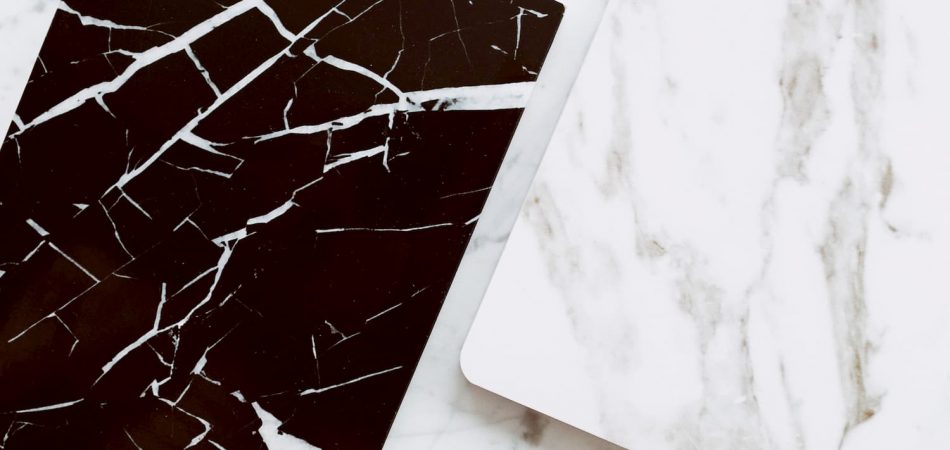Granite is one of the most popular natural materials used for countertops. But many people who choose this type of countertop are often a little concerned initially about the amount of granite counter maintenance that is required.
A granite counter is a great material because it is durable and resistant to stains, heat and scratches. While this is true, it’s important to remember that granite cannot withstand extreme temperatures like fireplaces can.
When homeowners gain an understanding of how to care for their granite countertops, they often realize that it is far less complicated than they think. With the right care, your granite countertop can remain in excellent condition and be both functional and appealing to your kitchen.
How to Care for Granite Countertops
Here are a few granite maintenance tips to care for your granite countertop.
- Avoid using cleaning products that contain acid or are abrasive. This is because such cleaners tend to cause discoloration and scratches on the countertop.
- Do not use your countertop as a surface to sit or stand on because it will likely crack or break under such pressure since it is not designed for such use.
- Since granite does not withstand extremely high temperatures, be sure not to place hot dishes directly on your countertop. The heat may cause discoloration or cracking. Always use a mat underneath hot dishes to protect your countertop.
- Clean spills as quickly as possible. While granite countertops are resistant to stains – typically from coffee, tea, and wine – that does not mean that you should allow stains to sit on your countertops for hours. As soon as a spill occurs, wipe your countertop clean as soon as you can and don’t allow grease or oil to remain on the countertop overnight. Oil causes the most amount of staining on granite countertops. If an oil stain is allowed to remain on the countertop for some time, a cleaning procedure specifically designed to remove deep seeded dirt will need to be done.
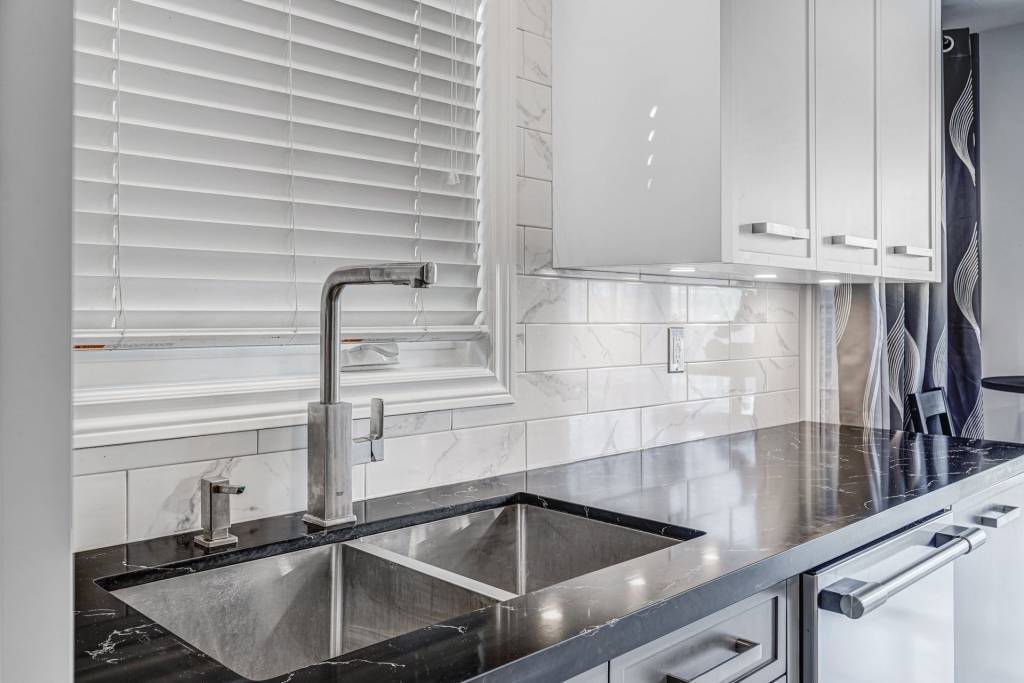
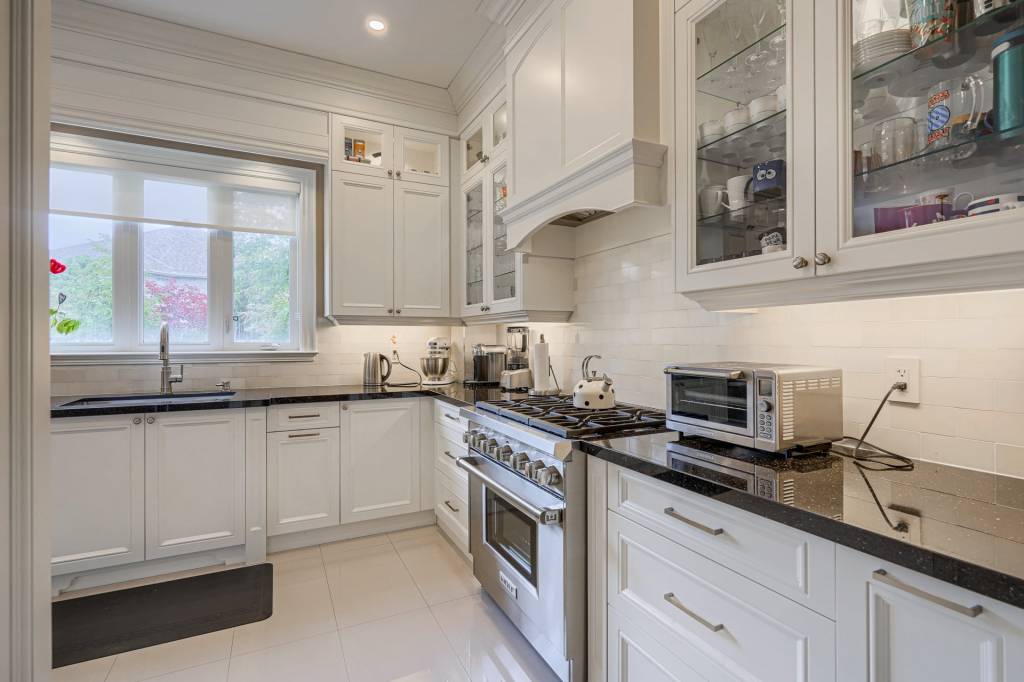
Avoiding Chips
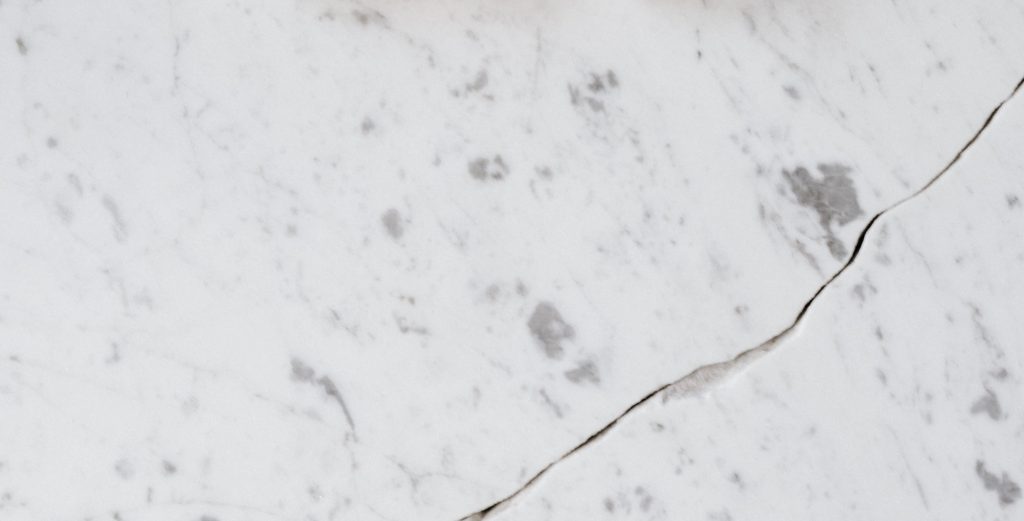
Regular granite countertop care can prevent issues like chipping. It’s uncommon to find chips in granite countertops, however it can happen. Typically, when this does occur, it is because of extreme force exerted onto the edges of the countertop, which tend to be more prone to damage. Whenever you are handling heavy kitchenware on or around your counters, be sure to take special care.
If you do notice a chip, be sure to keep the piece safe and then have it placed right back into position when your countertop is repaired.
Sealing
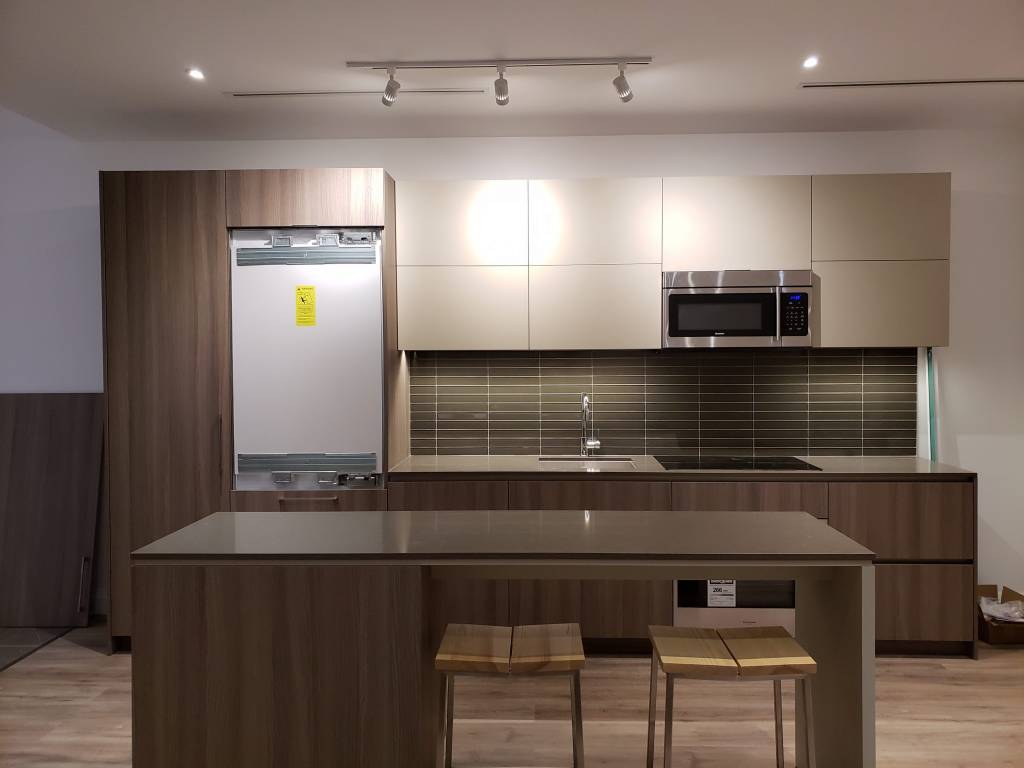
Some types of granite countertops need sealing to further protect them from damage. There’s a simple way to determine whether your countertop needs this to be done using a simple paper towel test. Sealing a countertop that does not require sealing can create quite a mess and affect the aesthetic appeal of your countertop. So before you begin, be sure that the type of granite you have requires sealing.
To do this, soak a piece of paper towel or white cotton towel and place it on the countertop for about 5 minutes. If you notice that the area underneath the paper towel becomes dark from the water seeping into the granite, that is an indication that your granite needs to be sealed so that it becomes resistant to water-based spills and stains.
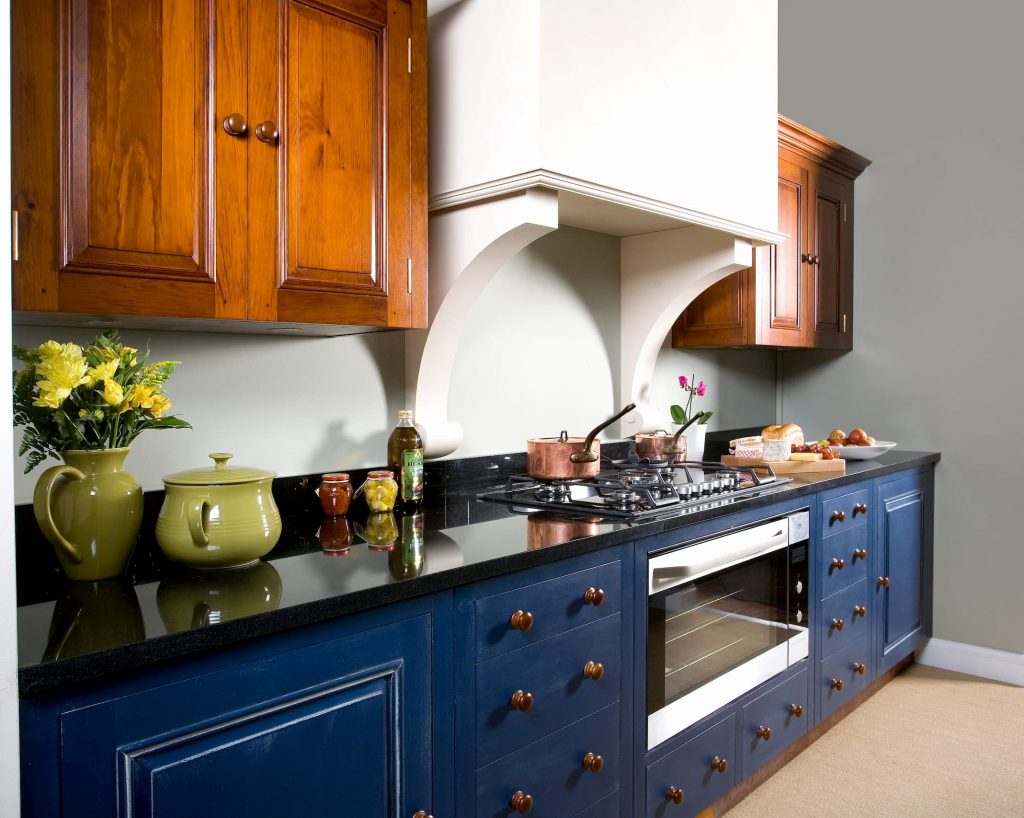
Another thing you can do is perform a solvent test to determine whether an oil stain can penetrate the granite. To do this, dab some paint thinner onto the countertop and let it stand for 5 to 10 minutes. When you remove it, check to see if the stone has not been darkened by the paint thinner. If not, it is safe to say that the oil stain will not penetrate the granite surface and cause a permanent stain. If the area does become dark, then you need to seal the countertop to protect it from oil-based stains.
Do’s & Don’ts of Cleaning Granite Countertops
Do’s:
- Do use a soft cloth or sponge for cleaning spills – clean up spills as soon as possible using a sponge or soft cloth. And because granite is a natural stone, we recommend cleaning it with a granite cleaner that not only cleans the surface but helps keep the countertop in the best condition possible.
- Do use coasters to protect your countertop – use coasters for glasses, bottles and cans. It’s just a good practice to protect all of your countertops from liquid spills.
- Do use mats for hot dishes – while you can take a pan right out of the oven and place it on a granite countertop and not experience any damage to your countertop, there are times when doing so will cause your granite to crack. Although this is rare, it’s a good habit to always use mats to protect your surface from hot pans. It’s not only the heat that you need to protect the countertop from. Sometimes grease and grit can get trapped between the pan and the countertop and cause a scratch. Despite granite being very hard and durable, some surface damage can occur in frequently used portions of your granite countertop.
- Do use a cutting board instead of cutting food directly on the countertop – sharp knives can cause scratching. That’s why it’s advisable to use a cutting board so that it does not damage the countertop or dull your knife.
Don’ts:
- Do not use generic cleaning products for your granite countertop – cleaning products that contain bleach or any other strong chemicals have a tendency to damage natural stones and make them more prone to staining. Some homeowners try to save money by purchasing generic brands, but this costs you more in the long run.
- Do not use vinegar, ammonia, lemon or orange cleaners. These ingredients are quite common in many household products but not suitable for granite countertops because the acid in these cleaners can damage natural stones.
- Do not use bathroom cleaners.
- Do not sit or stand on your countertops.
- Do not store liquids directly on your countertop. Things like cooking oil or other liquids can spill or leak onto your countertop and go unnoticed for some time. Even if your granite countertop is sealed, anything that stays on your countertop on the surface for an extended period of time can cause a stain.
FAQs
There is no definite answer as to how often you should seal your granite countertop because the need is determined by a number of variables. Generally, your granite countertop will need to be sealed every 1-3 years. The best way to know when this is needed is to conduct the paper test.
No. Lysol contains chemicals that are too hard for granite countertops. Instead, use a granite cleaner or a gentle dish soap and soft cloth.
No, but it does improve the stone’s resistance to dirt and stains.
Granite is durable and has the ability to withstand heat. However, extremely high temperatures can damage your granite countertop. It’s best to use mats underneath hot pans.


